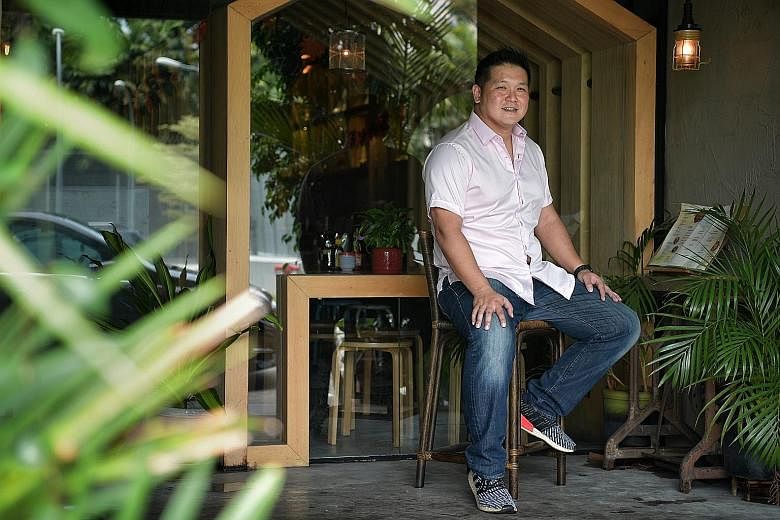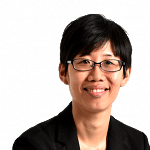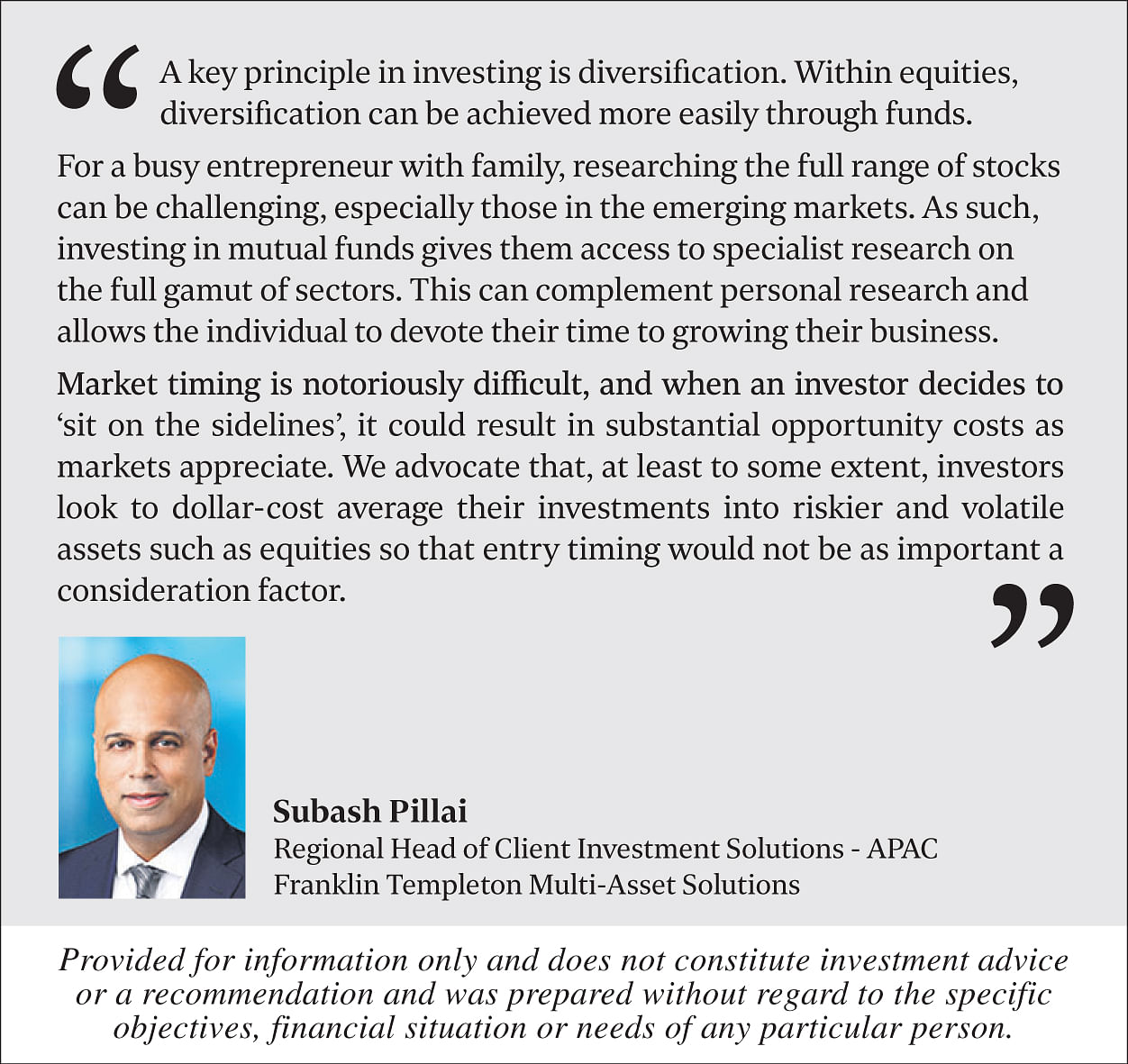When Mr Darien Tan started his second business, he didn't think he would be working until 3 o'clock in the morning as it was merely a side project.
But when the first Mrs Pho outlet opened in 2014, Mr Tan found himself going to the Vietnamese eatery every night to run the show.
"I was practically doing two jobs," he said. During the day, he would be running his oil-trading company, his main business that was started in 2010 with $100,000.
"We want to go all the way (to make it work). And a lot of work was put into it," he recalled.
Today, Mr Tan and his partner have expanded the eatery to three outlets, thanks to an investment from Gourmet Foods Holdings.
As Mr Tan, 42, believes strongly in diversification, he started a third business last year - in recycling. The new business focuses on solutions that transform food waste, fat and grease into renewable energy.
While these three businesses appear to be in diverse fields, Mr Tan points out that they are essentially necessities - energy, food and environmental protection.
-
Worst and best bets
-
Q What has been your biggest investing mistake?
A I lost about US$100,000 (S$135,800) in United States-listed GT Technologies from 2014 to 2015. I had already made good money from my first round of buying and selling. But the share price kept going up. So I bought the counter again, hoping that the price would continue to rise. However, with the sudden announcement of the company no longer securing a big contract, things suddenly went downhill. For about one or two weeks, I kept trying to sell the shares but no one wanted to buy. Eventually, the company went bust and I lost all my investments. The lessons I learnt are not to be greedy and to walk away when I am already winning. Now, if I think it is the right time to sell a counter, I will sell. I would not regret selling a stock too early. At the end of the day, I feel I should be contented.
Q And your best investment?
A I bought Citibank shares when they were trading at US$2 during the global financial crisis in 2008. At that time, people were speculating if the price would go down further. I put my money in and the price shot up to more than double in less than a year. I made a few hundred thousand dollars from selling. After that, it continued to rise. But no one can know when is the best time to sell.
"Everyone needs to use energy. And no matter what their income levels, everyone needs to eat," he said.
"As for the environment, there is a lot of attention on issues like climate change. This is the next growth area. And our aim is to convert waste into energy with almost zero emissions."
Today, Mr Tan splits his time among his three businesses, and also holds a regular weekly meeting with the managers. "If there is a project going on at one business, then more time will be diverted there. But I will certainly still catch up with my guys regularly," he said.
Mr Tan has a degree in information technology from RMIT Melbourne. After graduating in 2003, he worked in Australia in IT, sales and physical training before returning to Singapore in 2009 to help run his family's marine-engine spare-parts business.
He is married to a homemaker. They have two sons, aged 14 and 13, and a daughter, 10.
Q What's the next stage of growth for your businesses?
A I like businesses that are focused around necessity goods, like energy, food and the environment. Renewable energy is what I'm now looking into with my new recycling business.
We're looking to convert waste into energy sources like oil. We hope to do something for the environment and the future.
Q What's in your personal investment portfolio?
A My investments are in properties (30 per cent), stocks and Reits (40 per cent) and insurance (30 per cent).
My stock portfolio is quite evenly spread out over Reits and energy, technology and financial stocks, with roughly a quarter of my portfolio in each sector.
And the average return is about 6 per cent. Most of the stocks I hold are for the long term of 10 or more years.
Insurance is a safe bet, but I do not recommend that people buy too many insurance policies or rely on them as a main source of investment because part of the returns is used to cover the insurance cost.
Q What is your immediate investment plan?
A The market is not very good now, so I'm holding on to cash and waiting for opportunities.
Q How did you get interested in investing?
A I remember I was at my first job after graduation, working at the IT department of the university that I graduated from in Australia.
A friend recommended me a book on investing. I've forgotten the name of the book, but it was like a dummies guide to investing.
It was nothing technical. It gave concrete examples of how people can save money by quitting an expensive habit like smoking, and putting that money into stocks to grow. It discussed the performance of some of the blue-chip companies like Wells Fargo, Coca-Cola and IBM, and how their individual value has grown over the years.
For a young working adult, putting money in a stock that can offer good yields sounded like a good idea.
So I took the advice and started buying small lots of mining counters. That was during the mining boom in Australia, I started selling when the prices went up.
I made money, and that was what got me interested in investing.
Q Describe your investing strategy.
A I don't really have a strategy. I have to know what the company is doing, and whether I'm comfortable with its business. But I try to diversify a fair bit over different sectors. I'm now paying more attention to the technology sector. There are many new companies popping up, such as Tesla, Grab, Uber, Facebook and Tencent. Fintech is definitely another big trend right now. And I'm also looking at the environment sector. There is a lot of talk about this, including climate change. This will be the next growth area.
Q What else is in your financial plan?
A Legacy planning - wills and a lasting power of attorney. I believe everyone should draw up a lasting power of attorney. In the event that anything happens to me, I will have someone to look after certain matters, especially those concerning my finances.
Q How are you planning for retirement?
A I plan to retire at 65. But I plan to stay busy during retirement because I don't think I will be able to sit still and do nothing. I may want to move into a consulting role and groom the youngsters. I also hope to be able to travel with my wife more. To be able to travel and live a comfortable life, I reckon we need about $15,000 a month.
Q Money-wise, what were your growing-up years like?
A My family has always been thrifty. My dad always came home for dinner and we seldom ate out. My dad ran a marine-engine spare-parts business and he is still doing that. My mum is a homemaker and I have an elder sister.
Although we were brought up to be thrifty, my parents would always make sure that they could provide us with the best when we were growing up. We had tuition, and went on yearly holidays.
My mum would keep a record of the weekly household spending. She would take me marketing and, when we came back, I would watch her do the calculations. This gave me a sense of the need to budget, and I learnt from it.
Q What does money mean to you?
A Money is important as it can provide us with a comfortable life. But it is not the most important thing. I hope to provide the best for my family and, when I retire, I can enjoy the fruits of my own labour. At the same time, I don't want to be a burden to my kids in the future. I find that it's getting harder to grow wealth these days and I don't want my kids to have to take care of our needs in the future.
Q Home is now...
A I live in a 1,500 sq ft freehold condominium unit with three bedrooms in District 9.
Q I drive...
A I drive a grey BMW 5 series.




